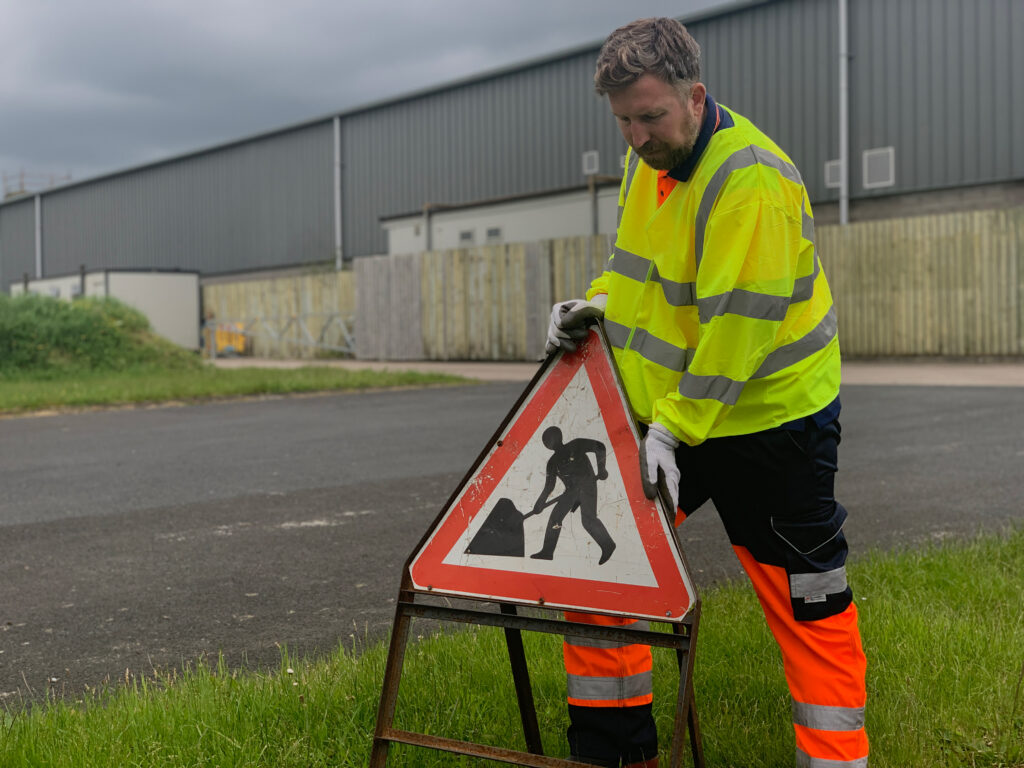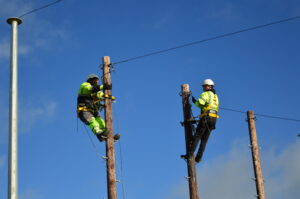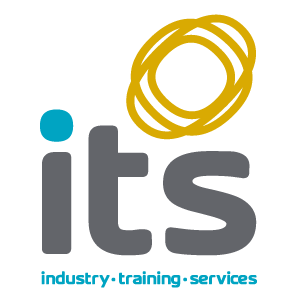Industry Training Services offer CITB Temporary Works Co-Ordinator and Supervisor training remotely through Zoom or Microsoft Teams as well as face-to-face classroom training at our Portadown headquarters and the social innovation hub in Ballymun, Dublin. Temporary Works training can also be delivered in-house at company premises across Ireland by our experienced CITB approved trainers.
When deciding whether to undertake your TW training remotely or attend a classroom environment, there are key differences that you should consider prior to making your decision. However, it is important to be aware that whether undertaking training remotely or face-to-face, the CITB Temporary Works Co-Coordinator and Supervisor training framework adheres to the code of practice for Temporary Works procedure, British Standard 5975 (BS5975) and provides a detailed understanding and knowledge in respect to both TW roles.
1. Remote Temporary Works training can be undertaken from the comfort of your own home or office.
TW training is available to candidates anywhere in the world, regardless of differences in time zones or locations. The courses adhere to BS5975 and are delivered by qualified, industry-focused trainers with significant construction experience. Both classroom and remote training is delivered in English language and trainees must have a good understanding of spoken and written English. If choosing remote learning, it is important you have a suitable PC or laptop with video and audio options and reliable, high speed internet connection. You will need to be in a quiet, uninterrupted space.
Prior to the commencement of the course, you will receive a meeting invite link plus additional information and resources regarding the course. It is your responsibility to ensure you are connected to the course and prepared to commence the training. Some individuals may have never undertaken an online course and may find this option daunting, whereas others may prefer to work alone and can focus on the training without the extra connections classroom based learning offers.


2. Not Tech Savvy?
Poor Internet Never fear…
If you are not tech savvy or have a poor Internet connection, perhaps due to living in a rural location, you may prefer to visit a classroom where you can experience face-to-face learning. You can visit our headquarters in Portadown, Co. Armagh or undertake our TW courses in the social innovation hub in Ballymun, Dublin. Some people may feel they gain a greater experience in a group-learning environment and can engage further with trainers as well as interact and building a rapport with other candidates with additional networking opportunities available.
3. Whether you are attending training remotely or in a classroom based environment, you must attend all learning sessions and complete the exam at the end of the course. TW Supervisor consists of one day training and TW Co-Ordinator is two days training. The content delivered remotely is exactly the same as the classroom based teaching. Failure to attend all sections of training will result in failure of the course.


4. For candidates undertaking training in Southern Ireland both TW courses contribute to CPD points. The Supervisor is 7 CPD points and the Co Ordinator is 14 CPD points..


5 .While the pandemic certainly developed a new online teaching model, it isn’t always an easy choice choosing between classroom v remote learning. Classroom training involves face-to-face interaction among students, trainers and colleagues with the opportunity to have a day out of the office or off site and an opportunity to share experiences with others in the industry. Remote training requires individuals to be self-motivated, IT literate offering the flexibility to complete training from any location without the need to travel therefore saving time and money on travelling and fuel.

Whichever method of learning you choose, it is vital to understand the importance of Temporary Works training and the responsibilities that TW co-ordinator and supervisory roles have. Co-ordination of temporary works is a much wider role and includes planning plus responsibility for managing all forms of temporary works. It is designed specifically for those engaging with contactors and provides an understanding of BS5975, statutory aspects of TW, risk assessments and method statements.
Full details of the TW Co-Ordinator training available here: https://www.industrytrainingservices.com/course/citb-temporary-works-co-ordinator/
The supervisor course will allow candidates to gain knowledge and skills in areas including risk management, roles and responsibilities of TWS, the importance of the 4S’s and an understanding of relevant aspects of BS5975: 2008+A1 :2011
Further information on TW Supervisor training available here: https://www.industrytrainingservices.com/course/citb-temporary-works-supervisor/
Contact Industry Training Services
For further enquires on our range of Temporary Works training or to arrange a booking,
please contact us on:
NI 028 3839 8700
Dublin: 01 891 6105
email [email protected].




